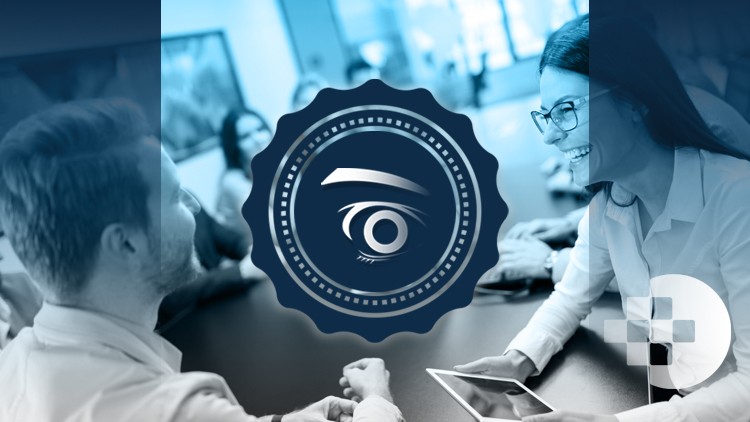
Understanding AI and Automation: Theories and Strategies for Modern Business Adaptation
What you will learn
Distinguish generative AI from traditional AI and its impact on modern workplaces.
Understand automation’s growing role in diverse organizational processes.
Identify the benefits and challenges of AI integration in business.
Analyze how AI reshapes organizational structures and decision-making.
Explore new roles and responsibilities in AI-driven environments.
Learn strategies for effective cross-functional collaboration with AI.
Apply change management models tailored for AI implementation.
Assess organizational readiness for adopting AI and automation.
Develop skills for fostering an innovative and adaptive workplace culture.
Create transparent communication strategies for AI transitions.
Balance human expertise with AI capabilities in professional settings.
Identify processes best suited for automation and optimize workflows.
Address ethical concerns, including data privacy and AI bias.
Ensure compliance with regulations related to AI integration.
Use performance metrics to monitor and evaluate AI-driven changes.
Build a long-term framework for continuous improvement in AI adaptation.
Why take this course?
🔥 Navigating Change: AI & Automation in Modern Workplaces 🤖
Course Headline:
Understanding AI and Automation: Theories and Strategies for Modern Business Adaptation
Course Description:
In today’s rapidly evolving business landscape, the advent of generative AI and automation technologies is reshaping the very fabric of how organizations operate. This comprehensive course, “Navigating Change: AI & Automation in Modern Workplaces,” is meticulously designed to equip professionals with a deep understanding of these transformative forces—not just from a technical standpoint but also through the lens of strategic leadership.
Overview of Generative AI and Automation:
- Distinguish between generative AI, automation, and traditional AI models. 🧠
- Explore how automation is becoming fundamental to operations across all industries. 🚀
Emerging Trends and Future of Work:
- Delve into the potential shifts in job roles and workplace dynamics driven by AI advancements. 🔄
- Gain insights into predictive trends that signal the future transformation of work processes.
Core Benefits and Potential Challenges:
- Evaluate the tangible advantages and abstract challenges presented by AI integration. ✅
- Learn to assess both opportunities and risks with a critical eye, ensuring strategic decision-making.
Impact on Organizational Structures:
- Understand how AI influences organizational hierarchy, role definition, and decision-making processes. 🏢
- Discover the shifts necessitated by today’s hybrid workforce of human and AI collaboration.
Change Management for AI Integration:
- Master established change management frameworks like Kotter’s and Lewin’s, adapted specifically for AI implementations. 📈
- Anticipate resistance, learn to manage it effectively, and build a versatile workforce equipped for technological evolution.
AI Readiness Assessment:
- Gain the skills to evaluate your organization’s preparedness for AI adoption at both technical and cultural levels. 🎯
- Learn how to measure current AI capabilities, competency gaps, and infrastructure maturity.
Embracing Change as a Growth Opportunity:
- Foster a culture that encourages innovation and accepts AI as a positive catalyst for growth. 🌱
- Emphasize continuous learning and professional development to keep pace with technological advancements.
Effective Communication Strategies:
- Engage stakeholders effectively using tailored communication tactics for diverse teams and departments. 🗣️
- Discover the role of feedback loops in fostering a culture of ongoing improvement and trust.
Soft Skills and Emotional Intelligence:
- Develop key soft skills and emotional intelligence to complement technical competencies. 🤔
- Understand how to effectively contribute to collaborative roles alongside AI systems.
Redesigning Workflows for Integration:
- Learn to identify processes suitable for automation and optimize workflows for efficiency and adaptability. 🛠️
- Balance human oversight with the benefits of AI automation to maintain productivity and decision-making effectiveness.
Ethical Considerations and Compliance:
- Address the ethical and societal aspects of AI, including data privacy, avoiding biases, and maintaining compliance standards. 🙌
- Build trust in AI systems by upholding ethical practices and transparent operations.
Sustaining Change and Continuous Improvement:
- Develop strategies to monitor AI changes and their impact post-integration. 🔄
- Create a framework for long-term change management, preparing you for future AI developments with confidence.
By the end of this course, you will not only understand how to navigate the complexities of AI and automation but also be prepared to lead your organization through the next wave of innovation. Enroll now to embark on a journey of growth and transformation within the modern workspace! 🚀💡